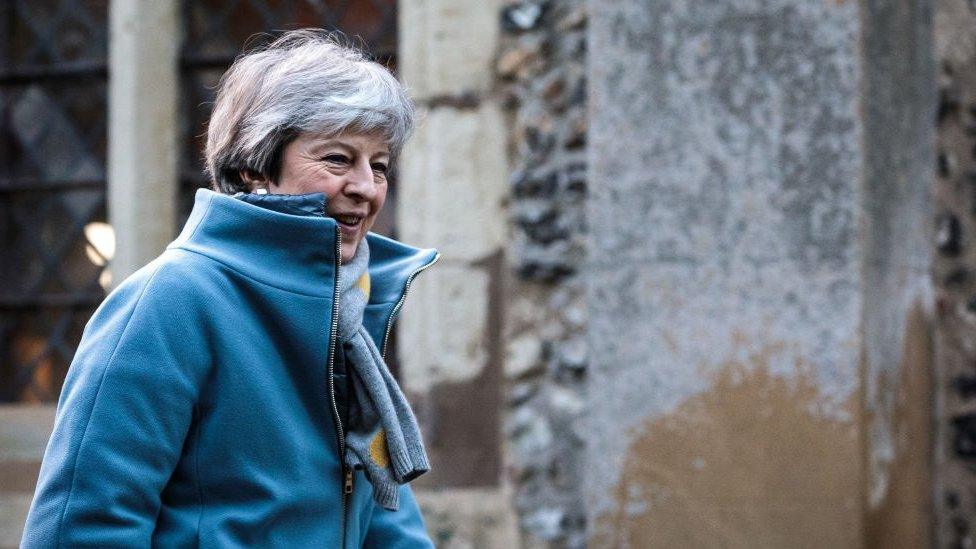World leaders too busy for Davos this year
- Published
- comments

Never has the prospect of spending a few days in the Swiss Alps seemed less appealing.
For nearly 50 years, the great and the good of world business and politics have headed for the small village of Davos to ruminate on the future of the global economy with the modest collective mission statement of the organising body, the WEF, to "improve the state of the world".
For many leaders the world can frankly wait while they tend to more pressing issues at home.
Trump, Macron, May, Modi and Mnangagwa have all decided that to be seen swanning around in the snow while there are crises at home is to rub salt into wounds in society that globalisation of the kind Davos represents is perceived to have opened.
The economic backdrop to this year's gathering is also not one to inspire much confidence.
The French president is among the world leaders missing Davos this year
The world's biggest economy is entering the fifth week of a government shutdown, the world's second biggest economy, China, has registered its slowest growth in nearly 30 years, the world's fourth biggest, Germany, is stagnating and the world's 6th biggest, the UK, is suffering from the side effects of the Brexit stand off as companies cancel or defer investment.
The rarified air of Davos will still play host to dozens of sessions on subjects arguably more important than any of these domestic travails - climate change, artificial intelligence, migration, etc.
But the sirens of the present are drowning out talk of the future.